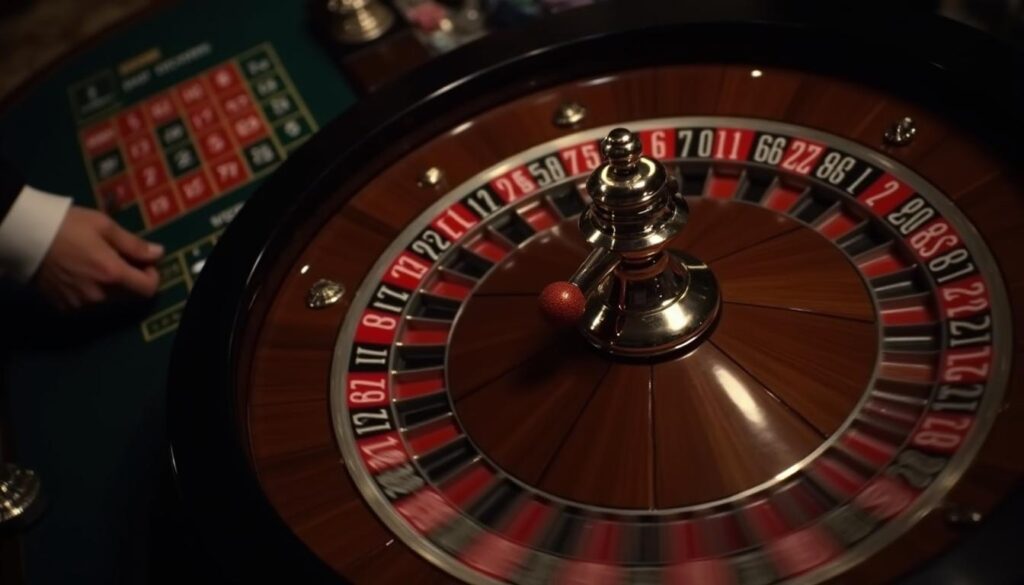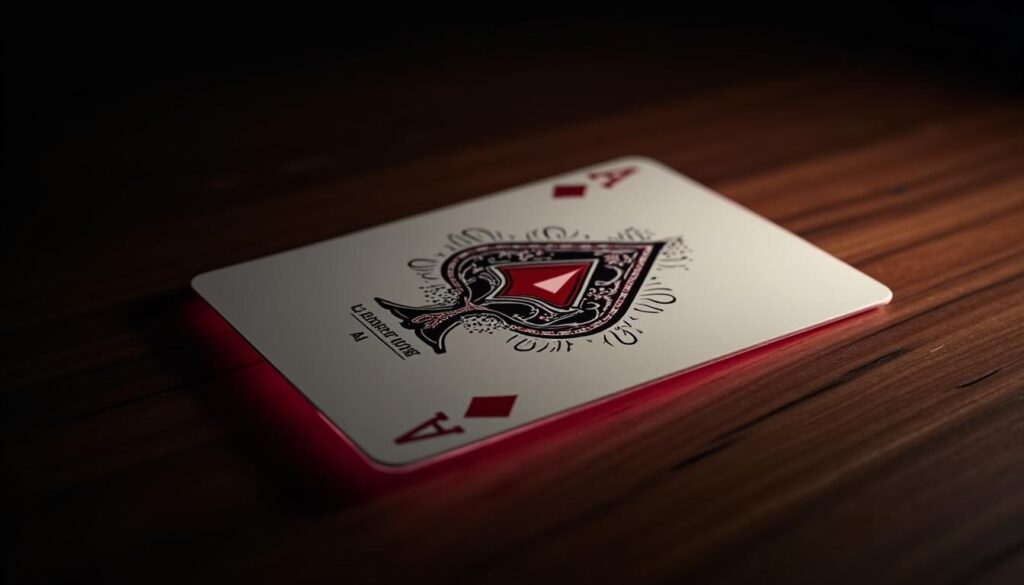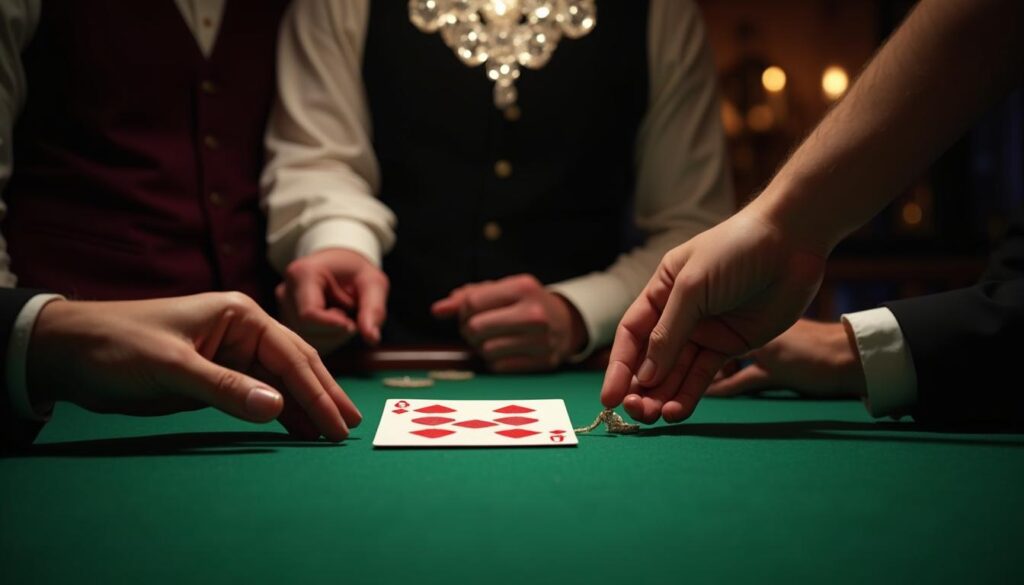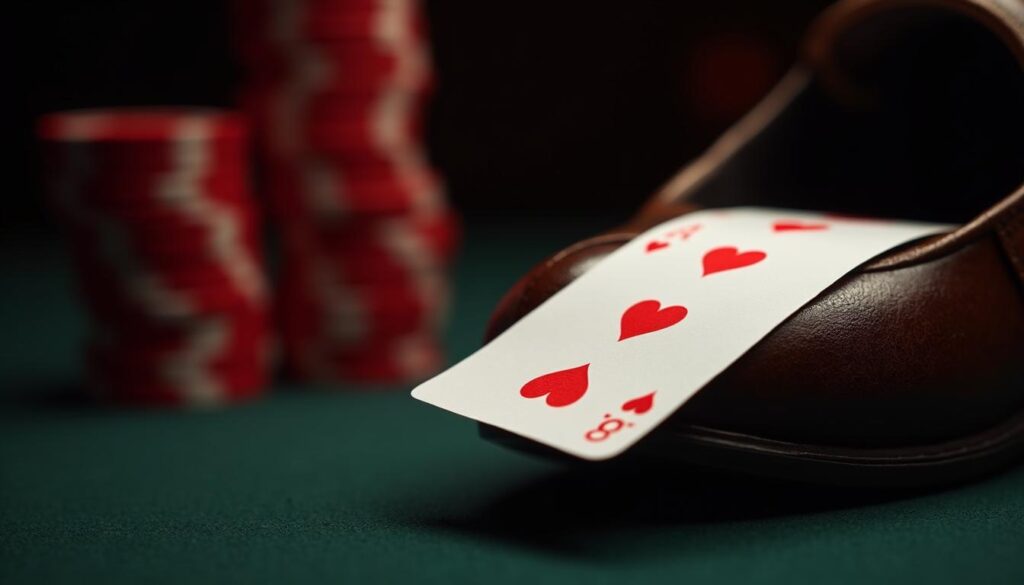Mastering Punto Banco Baccarat: Essential Guide to Rules and Play in the Classic Card Game
Back in the summer of 2023, I found myself at a lively gathering in London where a group of us decided to try our hand at some classic card games after dinner. Amid the chatter and clinking glasses, someone pulled out a deck and suggested we give this elegant game a go – it was Punto Banco, often just called Baccarat in casual circles. That evening sparked my deeper interest, leading me to explore its nuances for Spyfall, where we dissect mechanics and strategies in online card games. Fast forward to today, January 2026, and with the UK’s online gaming scene booming under stricter regulations, it feels timely to share what I’ve learned. As experts at Spyfall, we thrive on breaking down these games, analysing how simple rules can create layers of tension and decision-making, especially in digital formats where live dealers bring the casino vibe right to your screen.
This game has captivated players for centuries, evolving from European salons to high-stakes tables in Las Vegas and now thriving in UK-licensed online platforms. Its appeal lies in the blend of chance and subtle strategy, making it accessible yet intriguing. In Britain, where gambling is tightly regulated by the UK Gambling Commission (established under the Gambling Act 2005), it’s particularly popular among those who enjoy low-house-edge options. Ratings from independent bodies like eCOGRA often highlight its fairness, with average RTPs around 98.94% for the banker bet in standard versions. Over the years, changes like the shift from physical shoes to random number generators in online play have kept it fresh, but the core remains unchanged since its formalisation in the 19th century.

What Exactly Is This Card Game and Why Has It Endured for Over 500 Years?
Let’s start at the beginning. Originating in Italy around the 1400s, the game was reportedly devised by Felix Falguiere, who drew inspiration from ancient Etruscan rituals involving a nine-sided die. Before the modern era, it might have used tarot cards, but by the 15th century, it transitioned to standard decks. After spreading to France during the reign of King Charles VIII (who ruled from 1483 to 1498), it became a favourite among the nobility. What it means today is a game that’s democratised – no longer just for aristocrats, but available to anyone with a UKGC-licensed app.
In the UK context, its popularity surged in the late 19th century, notably through the Tranby Croft affair in 1891, involving the future King Edward VII. This scandal, where a player was accused of cheating during a private game in Yorkshire, drew massive media attention and boosted public interest. Fast forward to 2026, and data from the UK Gambling Commission shows card games like this contributing significantly to the £14.2 billion gross gambling yield in 2024, with online variants seeing a 12% year-on-year growth.
A micro-detail worth noting: the name derives from the Italian word for “zero,” reflecting how tens and face cards count as nothing – a clever mechanic that keeps scores low and suspense high. Another tidbit is the shoe, typically holding six to eight decks; in live online sessions, it’s often reshuffled after about 60% usage to maintain randomness.
How Do the Fundamental Rules Work in a Standard Round?

Imagine you’re at a virtual table on a UK site like those audited by the Gambling Commission. The objective is straightforward: bet on which of two hands – the player or the banker – will get closest to a total of nine, or if it’ll be a tie. Cards are valued uniquely: aces are one, twos through nines at face value, and tens, jacks, queens, kings zero. If the total exceeds nine, you subtract ten (or drop the tens digit), so a seven and eight become five, not fifteen.
A round begins with two cards dealt to each hand from the shoe. If either totals eight or nine – a “natural” – it wins immediately. Otherwise, drawing rules kick in. The player hand draws a third card if its total is zero to five, stands on six or seven. The banker’s action depends on the player’s third card, creating that edge-of-your-seat moment.
For UK players, remember that licensed operators must display RTP rates; for this game, the banker bet edges out at 1.06% house advantage, per stats from the Commission’s 2023 reports. We’ve analysed this at Spyfall: the mechanic rewards patience, as ties pay 8:1 but carry a 14.36% edge, making them riskier.
What Happens When You Need to Draw a Third Card?
This is where the game’s elegance shines. Suppose the player has a total of four. Before drawing, anticipation builds. After, if they get a five, total nine – a strong hand. What it means: this rule set, formalised in the 19th century from earlier French versions, ensures fairness without player input in punto banco, the dominant UK variant.
The banker’s draw is conditional: if the player stands (six or seven), banker draws on zero to five. If player draws, it gets nuanced – e.g., if player draws a four or five, banker draws on zero to five. This tableau, dating back to 1911 Hoyle rules, minimises decisions, appealing to online players who prefer quick rounds.
In Britain, with the Commission’s emphasis on responsible gaming since the 2024 updates, sites often include timers or limits, enhancing the experience without overwhelming.
How Has the Game Evolved from Its Historical Roots to Modern Online Play?
Historically, the game varied: chemin de fer, popular in France from the 1830s, allowed player choices as banker rotated. Before punto banco’s rise in the 1940s Havana casinos, it was more interactive. After adoption in the US in the 1950s, it became house-banked. What it means for UK players: safer, regulated play under the 2005 Act, with no peer betting risks.

Changes include mini versions in the 1980s, using fewer decks for faster games, now standard online. Ratings from Gambling.com in 2026 give top marks to live dealer options, where tech from Evolution Gaming (licensed since 2006) streams in HD.
A micro-detail: in the royal scandal of 1891, the Prince of Wales testified in court, marking a pivotal moment that popularised it in England despite initial bans under Victor-Amadeus III in 1788.
What Strategies Can You Use to Improve Your Odds in This Game?
While largely chance-based, patterns matter. At Spyfall, we recommend tracking trends – like banker streaks – but warn against fallacies. Bet the banker for its 45.86% win rate (per 2018 Nevada data, echoed in UK stats). Avoid ties despite 8:1 payouts.
In the UK, with Commission-mandated RNG testing since 2015, trust the fairness. Set budgets: the 2023 affordability checks limit losses.

How Does Betting Work and What Are the Payouts?
Bets are placed before deals: player (1:1), banker (1:1 minus 5% commission), tie (8:1 or 9:1). Commission, introduced in the 20th century, balances the banker’s slight edge.
For Brits, licensed sites offer bonuses, but read terms – wagering requirements average 35x per 2024 reviews.
What Variants Should You Try Beyond the Standard One?
Chemin de fer: players bank, adding strategy. Baccarat banque: two player hands vs. banker. Both rarer in UK online, but available on select platforms.
Punto banco dominates, with 91% of Macau revenue in 2014 from it – a stat highlighting its global appeal.
How Can You Play This Game Responsibly in the UK?
With the Commission’s 2026 updates, self-exclusion via GAMSTOP (launched 2018) is key. Sites must promote limits; we’ve seen ratings drop for non-compliant ones.

What Role Does Technology Play in Online Versions?
Live streams since the 2010s transform play; VR trials in 2024 add immersion. UKGC ensures secure, with encryption standards from 2007.
FAQs
Is this card game legal to play online in the UK?
Yes, provided the site holds a UK Gambling Commission licence, as per the Gambling Act 2005. Over 200 operators were licensed as of 2024.
What’s the house edge compared to other card games?
The banker bet has a 1.06% edge, lower than blackjack’s 0.5% with perfect play but more consistent.
Can you count cards in this game?
Not effectively, due to multiple decks and fixed draws; unlike blackjack, no player choices mid-hand.
How has the royal scandal influenced its popularity here?
The 1891 Tranby Croft case boosted interest, leading to its inclusion in UK casinos post-1960 Betting and Gaming Act.
What’s the minimum age to play in Britain?
You must be 18, enforced strictly online via ID verification since 2019 regulations.